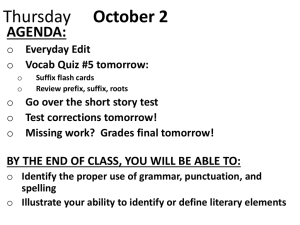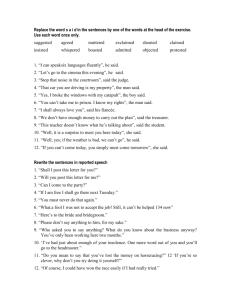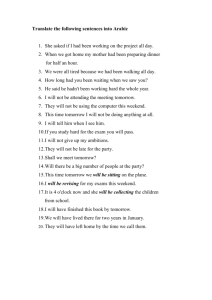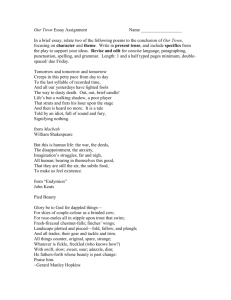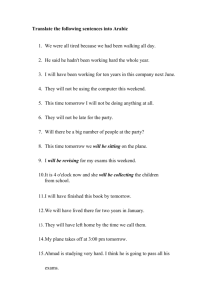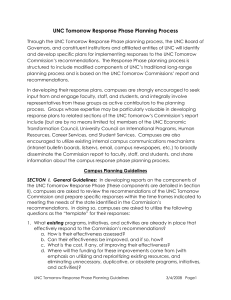The Portable Editor Volume 4, No. 10
advertisement
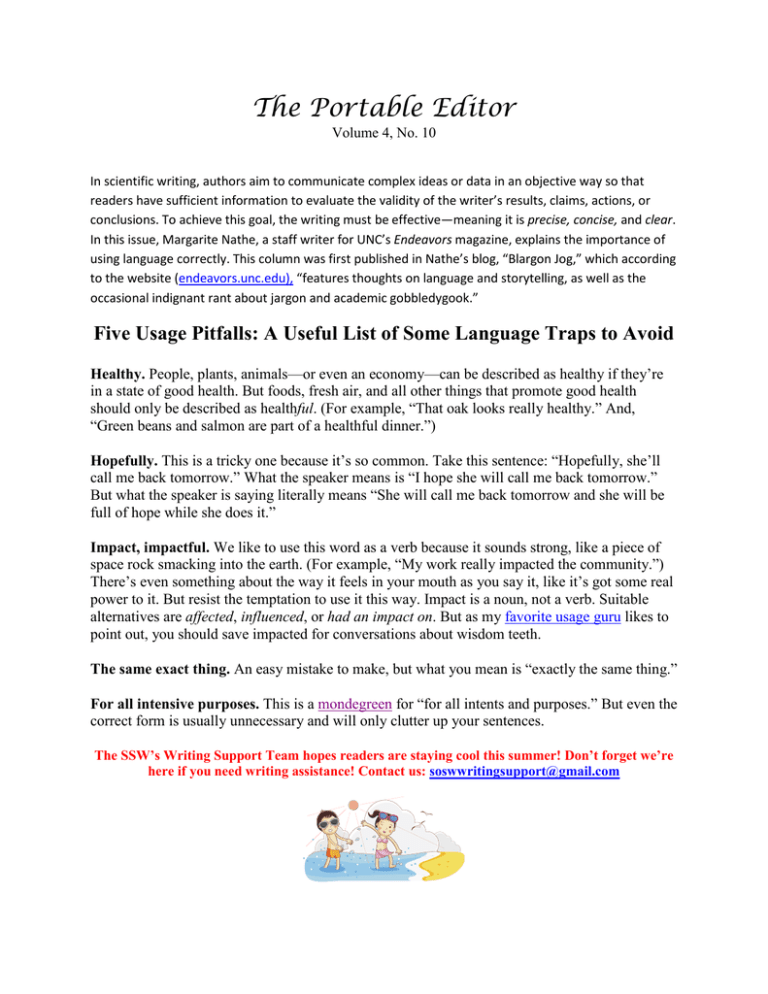
The Portable Editor Volume 4, No. 10 In scientific writing, authors aim to communicate complex ideas or data in an objective way so that readers have sufficient information to evaluate the validity of the writer’s results, claims, actions, or conclusions. To achieve this goal, the writing must be effective—meaning it is precise, concise, and clear. In this issue, Margarite Nathe, a staff writer for UNC’s Endeavors magazine, explains the importance of using language correctly. This column was first published in Nathe’s blog, “Blargon Jog,” which according to the website (endeavors.unc.edu), “features thoughts on language and storytelling, as well as the occasional indignant rant about jargon and academic gobbledygook.” Five Usage Pitfalls: A Useful List of Some Language Traps to Avoid Healthy. People, plants, animals—or even an economy—can be described as healthy if they’re in a state of good health. But foods, fresh air, and all other things that promote good health should only be described as healthful. (For example, “That oak looks really healthy.” And, “Green beans and salmon are part of a healthful dinner.”) Hopefully. This is a tricky one because it’s so common. Take this sentence: “Hopefully, she’ll call me back tomorrow.” What the speaker means is “I hope she will call me back tomorrow.” But what the speaker is saying literally means “She will call me back tomorrow and she will be full of hope while she does it.” Impact, impactful. We like to use this word as a verb because it sounds strong, like a piece of space rock smacking into the earth. (For example, “My work really impacted the community.”) There’s even something about the way it feels in your mouth as you say it, like it’s got some real power to it. But resist the temptation to use it this way. Impact is a noun, not a verb. Suitable alternatives are affected, influenced, or had an impact on. But as my favorite usage guru likes to point out, you should save impacted for conversations about wisdom teeth. The same exact thing. An easy mistake to make, but what you mean is “exactly the same thing.” For all intensive purposes. This is a mondegreen for “for all intents and purposes.” But even the correct form is usually unnecessary and will only clutter up your sentences. The SSW’s Writing Support Team hopes readers are staying cool this summer! Don’t forget we’re here if you need writing assistance! Contact us: soswwritingsupport@gmail.com
